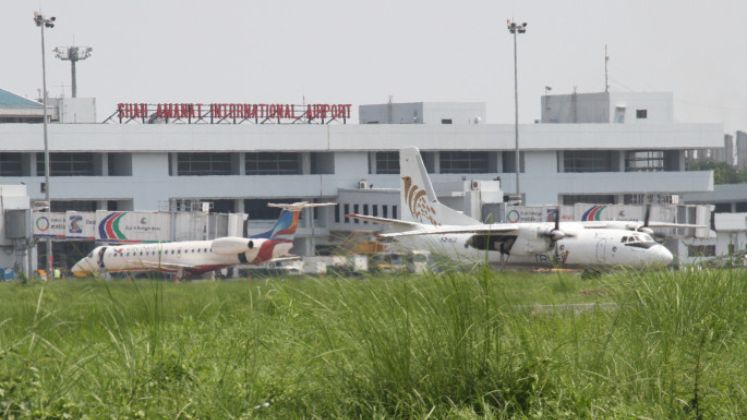
Four months after Chittagong Shah Amanat International Airport announced plans to launch direct export cargo flights, the initiative remains stalled at the tender stage, casting uncertainty over whether it will be implemented this year.
The project, first proposed in April following India’s cancellation of transshipment facilities, aims to establish direct cargo links to Europe and China. The airport authority had also planned to renovate the existing cargo station, which currently has a limited capacity of 270 tonnes. However, construction has yet to begin, and plans for flights to China remain dependent on verbal assurances.
Ibrahim Khalil, public relations officer at Chittagong Airport, said the export cargo shed is still under tender processing and is unlikely to be completed within 2025. He added that a recent change in leadership at the Civil Aviation Authority of Bangladesh (CAAB) has contributed to the delays.
China Eastern Airlines has inspected the airport and expressed verbal interest in launching cargo flights by the end of July, but no formal proposal has been submitted.
The slow progress has drawn comparisons with Sylhet Osmani International Airport, which launched cargo flights to Spain on April 27 and has already shipped 60 tonnes of goods. Traders in Chittagong have questioned why similar initiatives have not progressed in their city.
Representatives from the garment industry say the absence of air cargo services increases both costs and lead times. AM Chowdhury Selim, former vice president of the Bangladesh Garment Manufacturers and Exporters Association (BGMEA), said, “Since commercial cargo doesn’t arrive in Chittagong, we have to rely on Dhaka, which adds three to five days to transport, sometimes longer due to congestion. Export cargo flights from Chittagong should be launched as soon as possible.”
BGMEA Director Rabiqul Alam Chowdhury added that with proper infrastructure and security measures, Chattogram could become the country’s second major air cargo hub, boosting economic activity.
Currently, the airport can store 250 tonnes of imported cargo but only 20 tonnes of export cargo. Its facilities have been underutilized since import flights were suspended in 2022. Traders note that industrial growth in Chattogram, the Karnaphuli and Korean EPZs, and the Mirsarai Economic Zone has increased demand for air freight services. Despite repeated calls for a dedicated cargo village, the plan has not yet been implemented.
Voyager Aviation, the local agent for Emirates and Etihad, stressed that meeting international standards, including Explosive Detection System (EDS) and RA-3 certification, is essential for direct shipments to Europe, facilities currently unavailable at Chattogram Airport.
The suspension of cargo flights has also caused a sharp decline in imports under the baggage rule, which mainly covers daily necessities sent by expatriates. Once handling over 10,000 tonnes annually and peaking at 13,761 tonnes in 2014, imports fell to 7,233 tonnes in 2022, 232 tonnes in 2023, 327 tonnes in 2024, and 255 tonnes during the first seven months of 2025. Chattogram Customs has nearly halted baggage-rule imports amid allegations of undeclared goods and fraud.
Despite the lack of dedicated cargo flights, vegetables continue to be exported to Middle Eastern countries via passenger planes. Exports stood at 1,591 tonnes in 2021, 3,773 tonnes in 2022, 3,082 tonnes in 2023, and 4,312 tonnes in 2024, with 1,501 tonnes exported in the first seven months of 2025.






